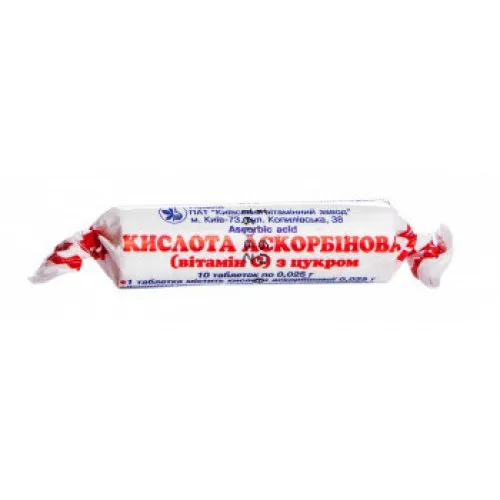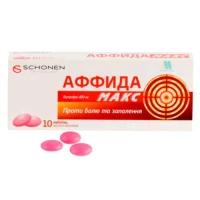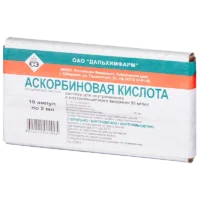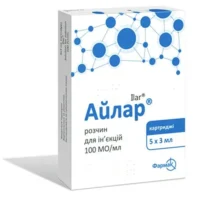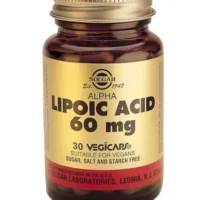Description
Ascorbic Acid (Ascorbic Acid) Tablets 0.025 №10
Composition
Each tablet contains: Ascorbic acid 25 mg.
Mechanism of Action
Pharmacological Properties: Ascorbic acid, also known as vitamin C, acts as a cofactor for enzymes involved in the biosynthesis of collagen, carnitine, and neurotransmitters. It enhances iron absorption, supports immune function, and scavenges free radicals, thereby protecting cells from oxidative damage.
Indications for Use
Indications: Ascorbic acid tablets are indicated for the prevention and treatment of vitamin C deficiency.
Contraindications
Contraindications: Do not use if you are allergic to ascorbic acid. Consult a healthcare professional before use if pregnant or nursing.
Side Effects
Side Effects: Common side effects may include gastrointestinal discomfort or allergic reactions. Discontinue use and seek medical attention if any adverse reactions occur.
Usage Instructions
Dosage: Adults should take 1 tablet daily with water, or as directed by a healthcare professional. Do not exceed the recommended dosage.
Benefits Compared to Analogues
Benefits: Ascorbic acid tablets offer a convenient and reliable way to ensure adequate intake of vitamin C, supporting overall health and well-being. Compared to other forms of vitamin C supplementation, these tablets provide a precise dosage and easy administration.
Suitable Patient Groups
Suitable Patient Groups: Ascorbic acid tablets are suitable for adults and children who require supplementation to meet their vitamin C needs. It is also beneficial for elderly individuals who may have difficulty obtaining sufficient vitamin C through diet alone.
Storage and Shelf Life
Storage Conditions: Store in a cool, dry place away from direct sunlight. Keep out of reach of children.
Shelf Life: Check the expiration date on the packaging. Do not use the product if expired.
Packaging Description
Packaging: The product is available in a package containing 10 tablets of 0.025 ascorbic acid formulation.
Clinical Evidence and Proven Effectiveness
Ascorbic acid, or vitamin C, is a crucial nutrient with antioxidant properties. Research supports its role in immune function, collagen synthesis, and wound healing. Studies have shown that vitamin C supplementation can reduce the risk of chronic diseases, such as cardiovascular disease, by improving endothelial function and reducing inflammation. For example, a meta-analysis published in the Journal of the American College of Cardiology demonstrated a lower risk of major cardiovascular events with vitamin C supplementation.

